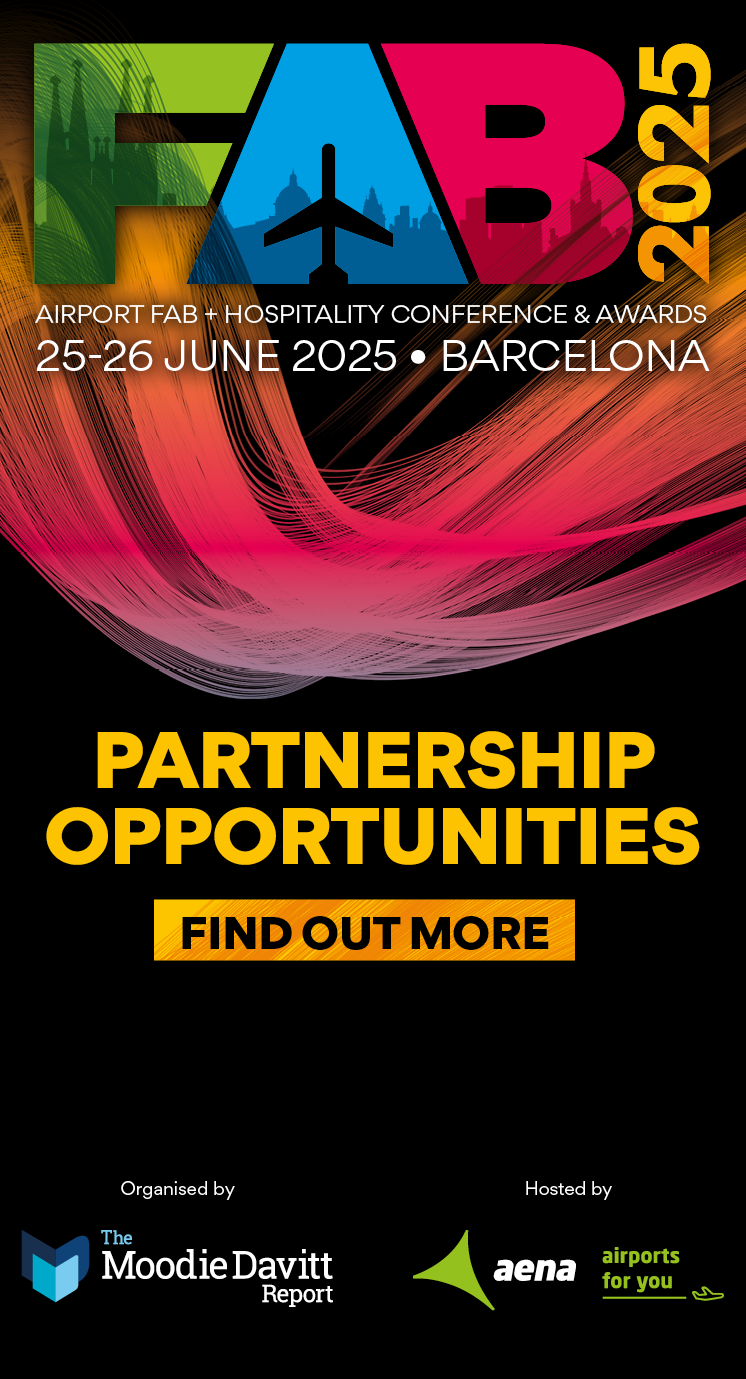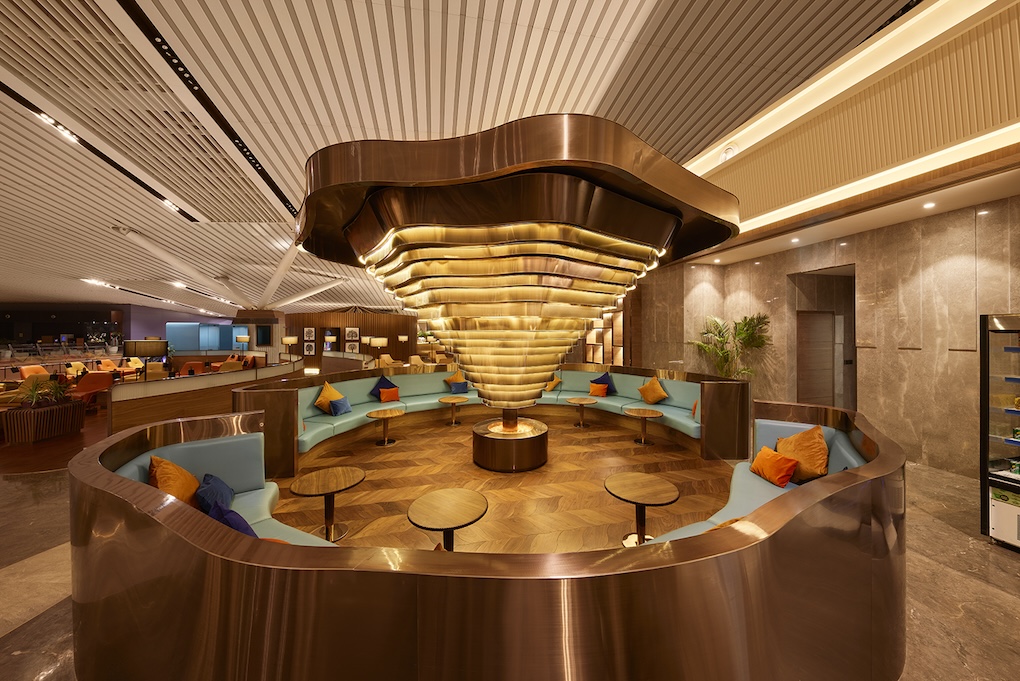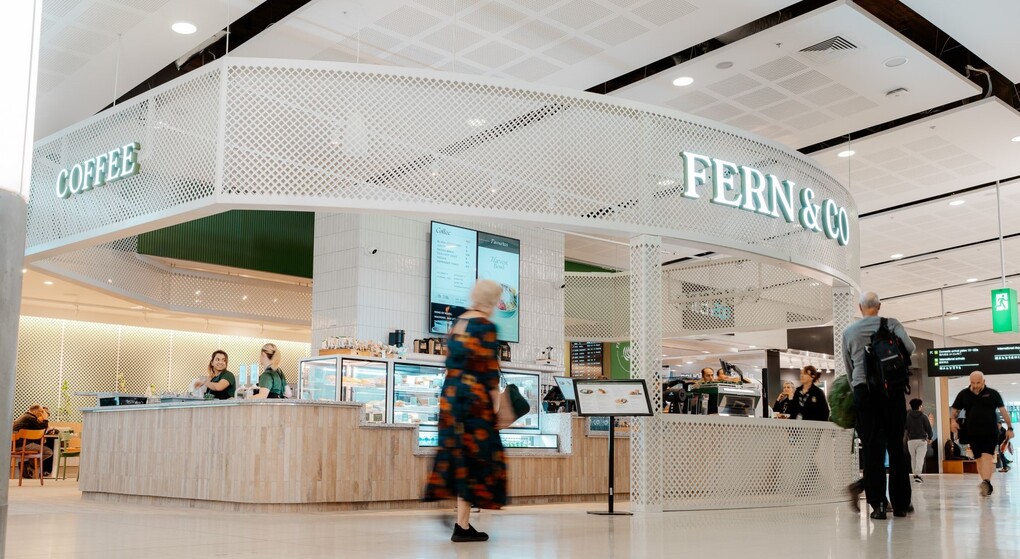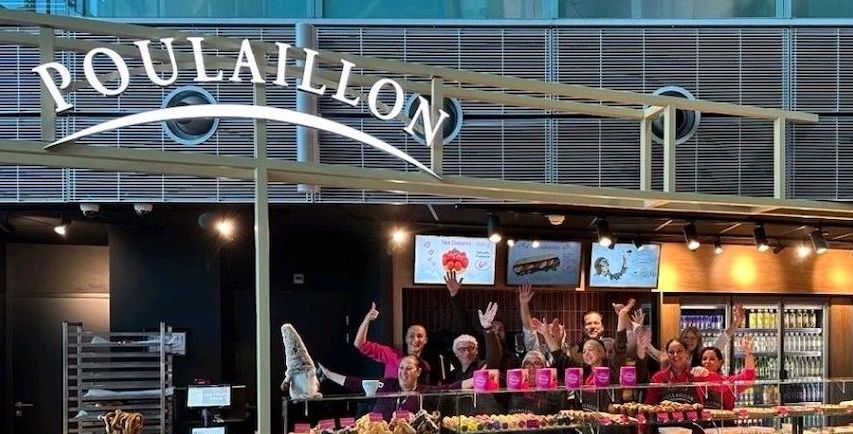EUROPE. Lagardère Travel Retail hosted its second annual Internal Chef Community Seminar on 3-4 December in Ljubljana, Slovenia. The event shone a light on the role of chefs in the travel channel, celebrating the diverse culinary expertise within the company’s F&B community.
Hosted by Marché (acquired in 2022 by Lagardère Travel Retail), it brought together 18 Chefs from across the company’s global network for two days of workshops and forward-thinking discussions around shaping the future of travel dining.
The seminar was held in partnership with UFS (Unilever) and Welbilt (ALI Group), offering chefs the opportunity to benefit from their expertise in ingredients and equipment, while fostering the creation of innovative and contemporary recipes.
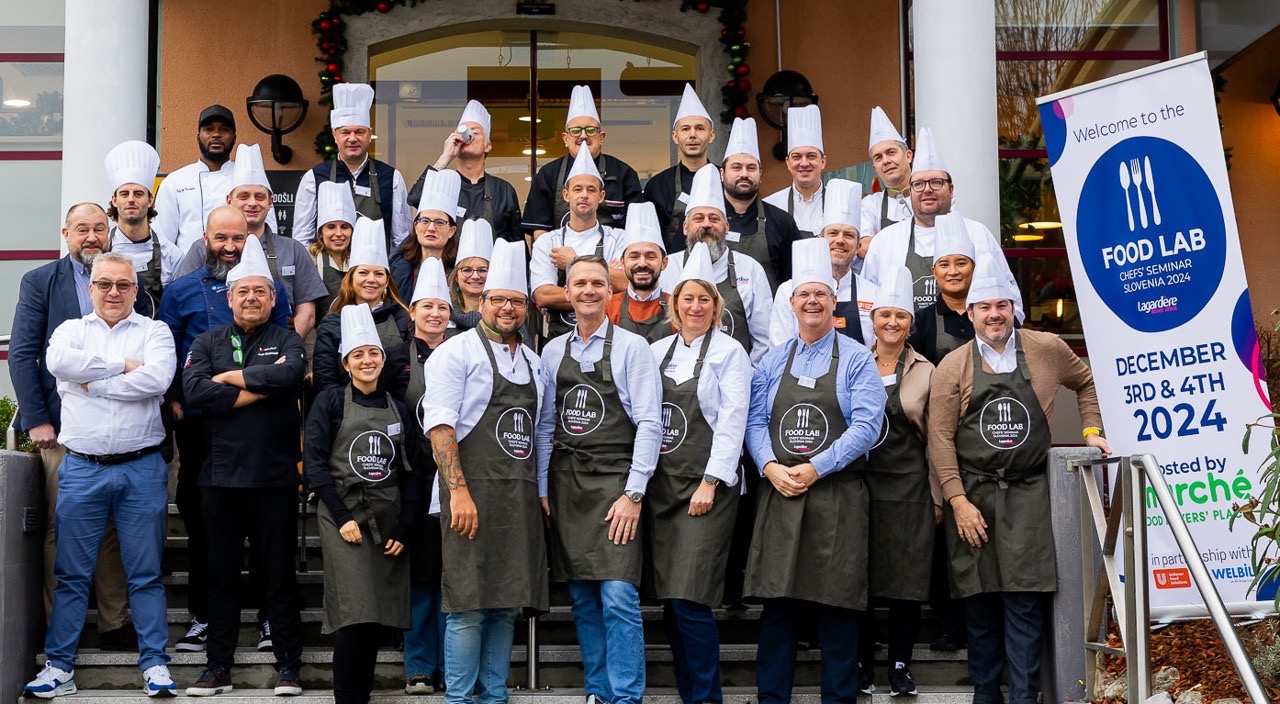
The seminar focused on expanding menu offerings while improving quality, flavour, sustainability and variety of food served in travel hubs worldwide. The Chef Community Seminar is the culmination of a year of quarterly calls and knowledge-sharing sessions, which aim to foster a culture of collaboration among chefs from diverse markets.
A key highlight was the discussion on sustainable culinary practices, where chefs exchanged ideas and best practices for minimising food waste as well as sourcing responsibly.
As part of the Responsible Offer Programme, chefs were made aware of responsible selection criteria, which cover major sustainability issues in the food industry. This includes independent labels attesting to sustainable farming practices, fair trade or animal welfare-friendly practices, but also substitutes for animal products, and gluten free or lactose free options.
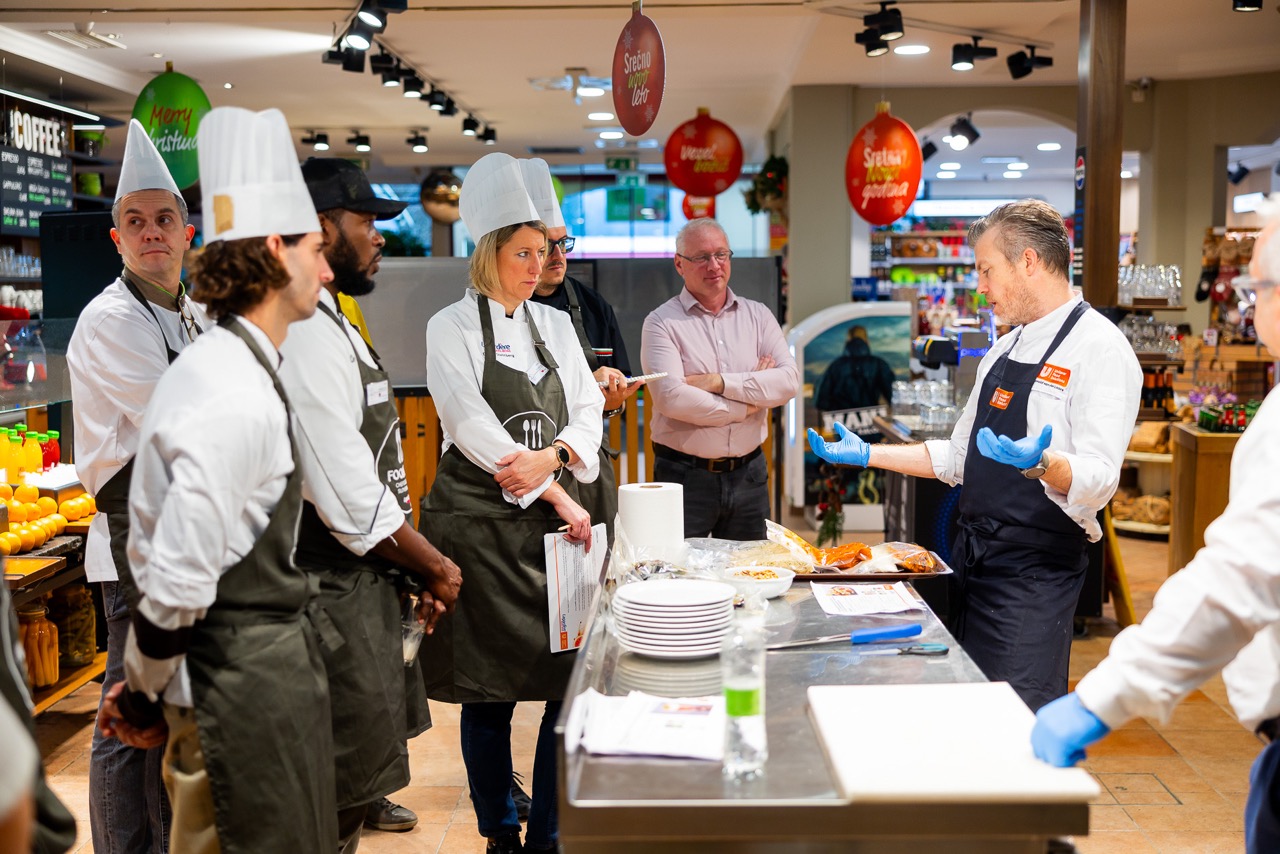
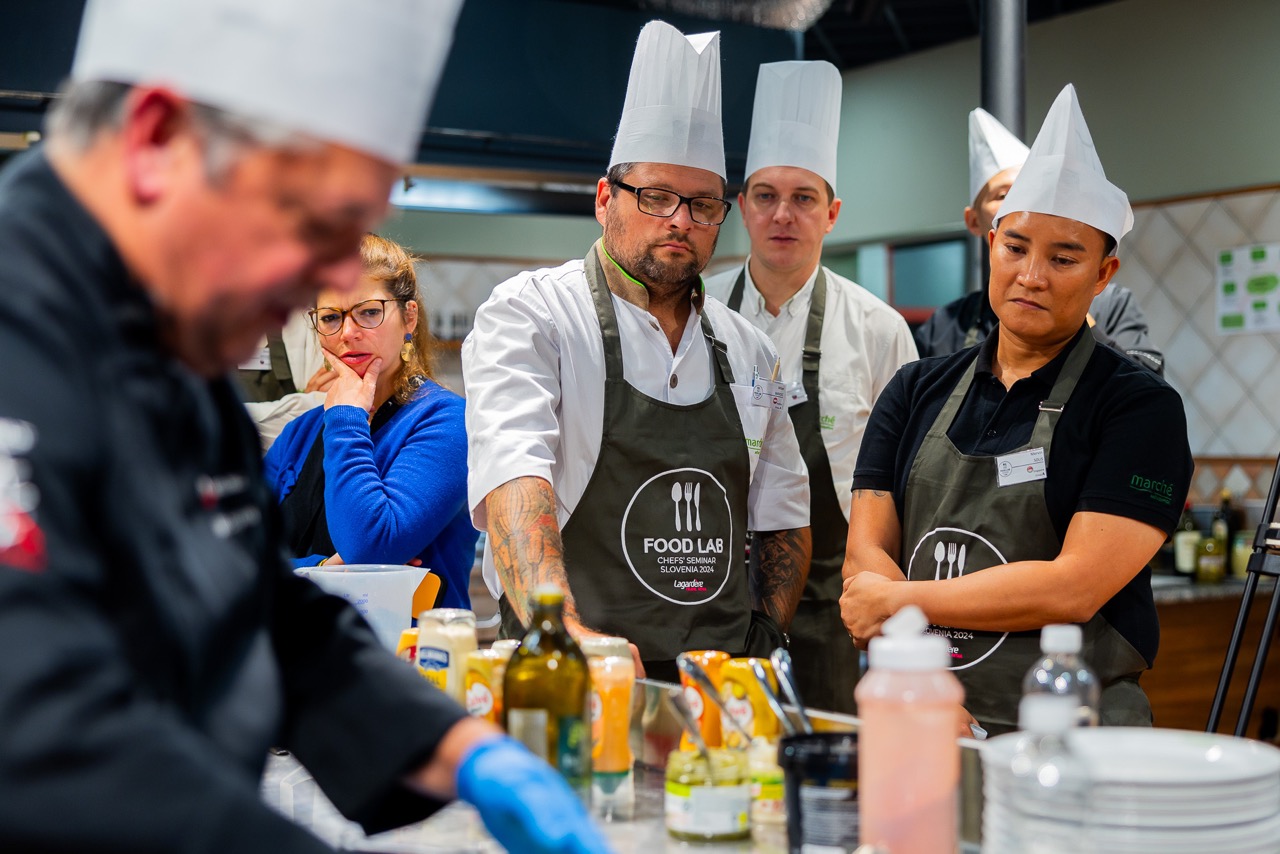
Lagardère Travel Retail reaffirmed its commitment to purchase all eggs from cage-free hens for its internal brands by end of 2025 and encourage its European subsidiaries to follow the standards set by the European Chicken Commitment.
The chefs also explored ways to incorporate more plant-based options into menus, responding to growing traveller demand and aligning with Lagardère Travel Retail’s CSR commitments. By introducing more plant-based recipes and responsibly sourced ingredients, the company said it is “actively contributing to global carbon reduction efforts while offering travellers more sustainable dining options”.
Through workshops, participants explored advanced techniques such as the ‘Light Kitchen’ approach, which optimises resources and preparation processes to deliver premium taste and quality, even in challenging locations with limited space and technical constraints, such as the absence of extraction.
This approach minimises waste, ensures consistent flavour and freshness, and is adaptable to both small-scale or high-volume operations, noted the company.
Note: The Moodie Davitt Report publishes the FAB Newsletter, which features highlights of openings, events and campaigns from around the world of airport and travel dining. Please email Kristyn@MoodieDavittReport.com for your complimentary subscription. |










